Research News
17 December 2020
The Dutch are in favour of the introduction of a vaccination certificate as a reward
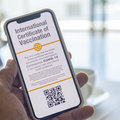
For us to be able to get Covid-19 under control, approximately 70% of the Dutch population would need to be vaccinated. There is considerable support among the Dutch population for the introduction of a vaccination certificate to encourage people to have themselves vaccinated. A vaccination certificate would offer people who have been vaccinated more freedom, for example to keep up their usual activities during an outbreak or to attend events at which maintaining a distance of 1.5m between people is not possible. This has become apparent from representative research among 1,640 Dutch people that was conducted by researchers from TU Delft, Erasmus University Rotterdam, RIVM, Maastricht University and Roskilde University.
17 December 2020
Award for paper on world’s first catheter able to make S-shaped curves in all directions
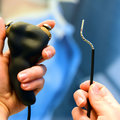
A team of researchers from the Department of BioMechanical Engineering and the Bio-Inspired Technology Group (BITE) has developed the ‘4 DoF Steerable Sigma Catheter’, the world’s first catheter with a tip able to make S-shaped curves. This catheter is controlled by two joysticks and was developed for complex interventions in the heart.
17 December 2020
Delft researchers chart the potential risks of 'free-floating DNA'

We don’t realize it, but loose strands of DNA end up in nature via our wastewater. As of yet, it is unclear how much this 'free-floating DNA' impacts environmental and public health. Researchers at Delft University of Technology (TU Delft) have now found a way to determine just how much potentially harmful DNA ends up in our wastewater. They have developed a method that can isolate such ‘free floating DNA’ from wastewater, which gives them the means to determine the extent of the problem. The results of their work will officially be printed in Water Research in February 2021, but have already been pre-published online.
08 December 2020
Miguel Bessa and Richard Norte have been awarded the Interstellar Initiatives Grant

Miguel Bessa and Richard Norte have been awarded an Interstellar Initiatives Grant from the Limitless Space Institute. The award is for their research ‘Origami Photonic Crystal Sails with Machine Learning’. Their research focus is about the development and demonstration of nanoscale origami photonic crystal membranes using data-driven machine learning.
03 December 2020
Technical Medicine master students tackle COVID-19 cases
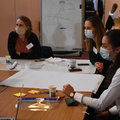
During the COVID Case Day, thirty master students from the Technical Medicine programme studied COVID-19-related cases submitted by various hospitals and health-care institutions.
02 December 2020
TU Delft software for determining contagion risk for specific locations
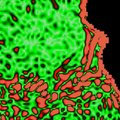
TU Delft professor of aerodynamics Fulvio Scarano, together with fluid mechanics expert Lorenzo Botto and simulation expert Wouter van den Bos, has developed software to calculate the risk of Covid-19 contagion at specific locations. The model virtually places a sick person in the space in question and simulates how quickly virus particles spread. The TU Delft researchers hope that designers will use the software to make predictions for determining whether an aircraft, classroom or restaurant, for example, is safe. The plug-in will probably become available in February.
01 December 2020
Delft researchers develop blood oxygenation sensor for premature babies
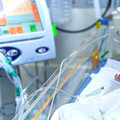
Doctors have to keep a close eye on babies that are born prematurely, and brain oxygenation is perhaps the most important thing to monitor. Up to 50 percent of premature babies suffer brain damage, leading to neurological problems. Researchers at Delft University of Technology have now developed a wireless sensor that monitors the health of the baby's brain in a simple, inexpensive and comfortable way for the child.
30 November 2020
Using artificial intelligence to solve arson offences

. In partnership with the Netherlands Forensic Institute (NFI), Thijs Vlugt, Mahinder Ramdin and Otto Moultos, researchers at the Department of Process & Energy, developed a new method using artificial intelligence that can be used to solve arson offences.
30 November 2020
3mE researchers partner in two NWA-ORC consortia
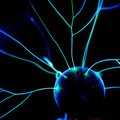
Researchers from TU Delft will work together in nine consortia with the entire knowledge chain and societal organisations, and conduct interdisciplinary research that will bring scientific and societal breakthroughs within reach. Faculty 3mE takes part in two consortia.
28 November 2020
Graphene balloons to identify noble gases
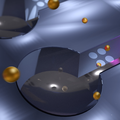
New research by scientists from Delft University of Technology and the University of Duisburg-Essen uses the motion of atomically thin graphene to identify noble gases. These gases are chemically passive and do not react with other materials, which makes it challenging to detect them. The findings are reported in the journal Nature Communications.
25 November 2020
Achilleas Psyllidis in new book Seeing the City
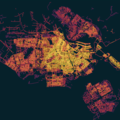
Cities are complex and have been at the core of research across several disciplines. From urban planning and geography to econometrics and policy science. With his research into using sensor data to improve design, IDE researcher Achilleas Psyllidis has recently contributed to the publication of Seeing the City.
23 November 2020
Photovoltatronics: smart solar cells that talk to each other

Imagine you’re looking at a skyscraper. Every single piece of their surface is generating and storing its own electricity!
20 November 2020
Team ZED from the Delft University of Technology has won 4TU Impact Challenge
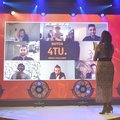
Team ZED has won the Dutch 4TU Impact Challenge and goes to the World Expo in Dubai.
20 November 2020
Research into face mask leakage
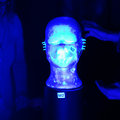
Philomena Bluyssen and Marco Ortiz are developing a method in the SenseLab to compare leakage rates in different non-medical face masks. Up to now the NEN standard does not contain such a test.
19 November 2020
New sensor chips: low-cost, smart and efficient
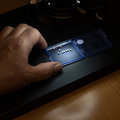
A chip with a built-in sensor that is so sensitive that it registers a single coronavirus particle. At TU Delft, several researchers in various faculties, including Frans Widdershoven (EW), Peter Steeneken, professor Dynamics of Micro and Nanosystems and Murali Ghatkesar (PME/3mE) are working on this research.